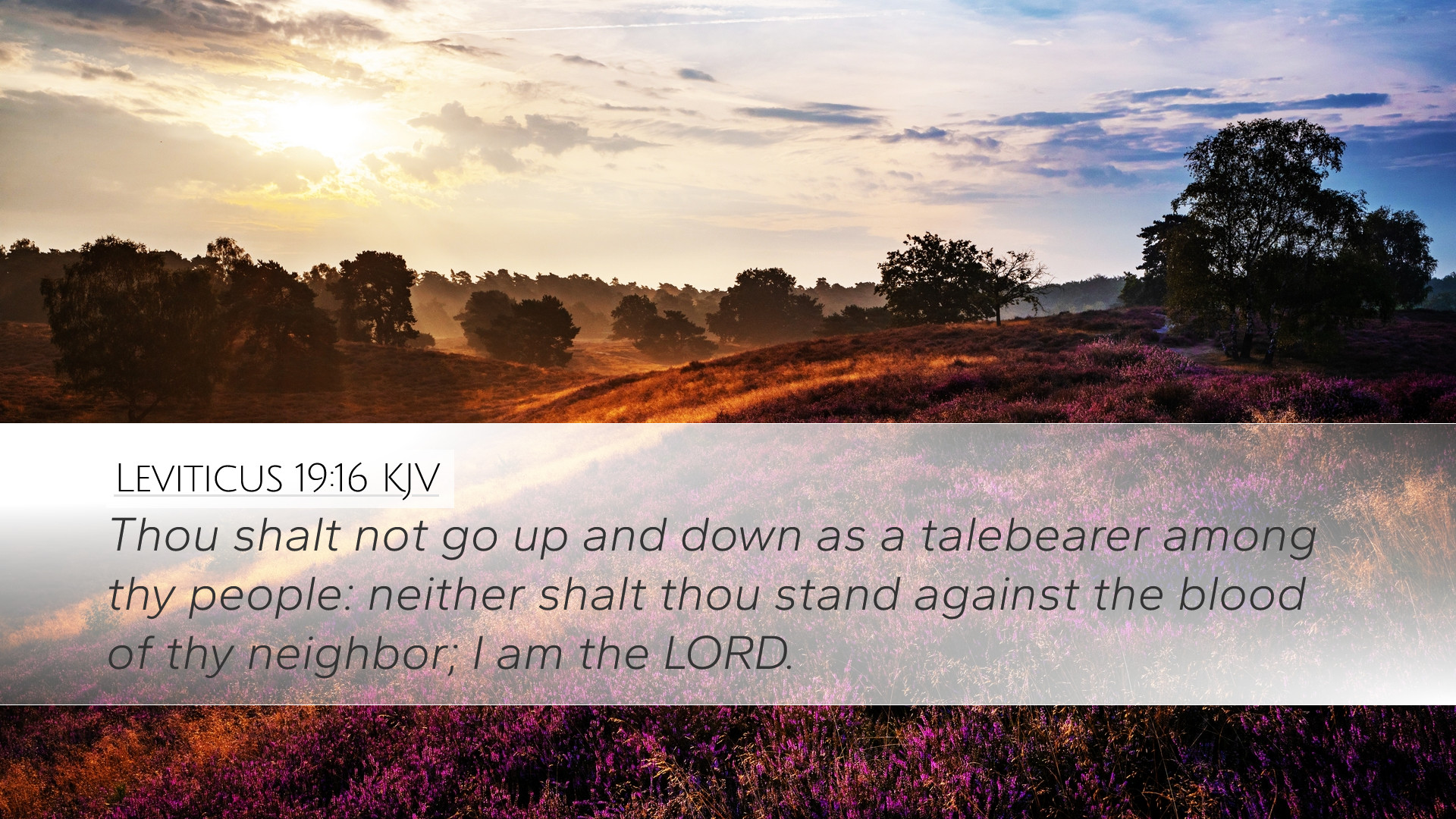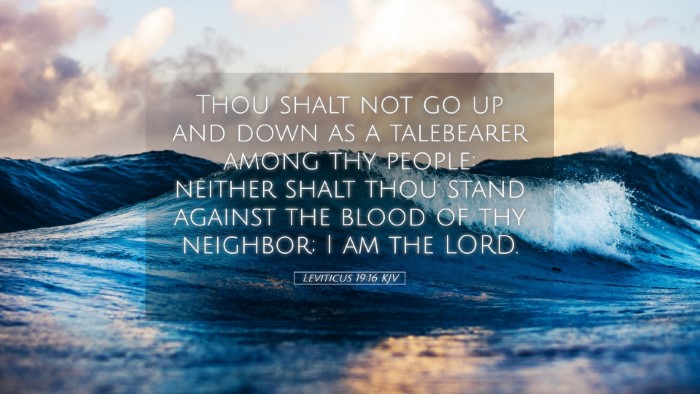Bible Commentary on Leviticus 19:16
Verse: "Thou shalt not go up and down as a talebearer among thy people: neither shalt thou stand against the blood of thy neighbour: I am the LORD."
Introduction
This verse is a significant component of the Holiness Code in Leviticus, emphasizing ethical behavior that aligns with God's character. It addresses the issues of gossip and the protection of one’s neighbor, both of which are crucial in building a healthy community. As we explore this verse, insights from various public domain commentaries provide a deeper understanding of its implications.
Understanding the Command
The command to refrain from being a talebearer (or gossip) underscores the importance of trust and integrity within the community.
-
Matthew Henry:
Henry emphasizes the destructive nature of gossip. He states that spreading rumors can lead to discord and undermine relationships. He urges believers to be careful with their words, as they can lead to sin against our neighbors.
-
Albert Barnes:
Barnes interprets this command as a prohibition not only against malicious slander but also against idle gossip. He notes that this behavior sows discord and represents a failure to love one’s neighbor as oneself.
-
Adam Clarke:
Clarke highlights the social implications of this command, especially its application in community ethics. He asserts that promoting truth and righteousness should be the primary focus rather than succumbing to the temptation of spreading personal opinions about others.
Implications of the Prohibition
The prohibition against gossiping reflects a broader principle of community health and harmony.
-
Social Justice:
Henry notes that standing against the blood of one's neighbor can also mean failing to defend the innocent or allow injustice to occur without protest. In this way, the command encompasses a duty to speak out against wrongdoing.
-
Community Integrity:
Barnes discusses how this verse establishes a community standard that upholds integrity. Gossip not only harms individuals but also damages the social fabric, leading to erosion of trust among community members.
-
Personal Responsibility:
Clarke elaborates on the idea of personal responsibility, suggesting that each individual has an obligation to promote peace and goodwill. Engaging in gossip reflects self-interest rather than concern for communal well-being.
Theological Reflections
This verse provides a rich field for theological reflection, connecting personal ethics with divine command.
-
God's Holiness:
The phrase "I am the LORD" serves as a reminder of God’s holiness and authority. Henry mentions that these commands are established based on God’s righteous nature, encouraging believers to aspire to that standard.
-
Love for Neighbor:
Barnes correlates this directive with the law of loving one’s neighbor. Gossiping stands in opposition to love; it violates the command to cherish and respect one another within the community.
-
Divine Justice:
Clarke stresses that God's justice demands that we not only avoid harming others through gossip but that we actively advocate for justice within our communities, denouncing wrongs when necessary.
Application for Today
As modern believers, the call to avoid talebearing remains profoundly relevant. In a world saturated with information and social media, this command serves as a timely reminder for ethical communication.
-
Self-Examination:
Henry encourages readers to reflect on their own speech—are we contributing positively to discussions or are we undermining others? The call to holiness encompasses our thoughts and words.
-
Building a Culture of Trust:
Barnes advocates for creating environments where trust prevails. This requires intentional actions that resist gossip and encourage honest communication based on love and respect.
-
Promoting Righteousness:
Clarke’s insights can inspire believers to adopt a proactive stance in advocating for truth and righteousness, ensuring our communities reflect divine justice and compassion.
Conclusion
Leviticus 19:16 invites believers to consider the weight of their words and the importance of community integrity. By integrating the teachings of Matthew Henry, Albert Barnes, and Adam Clarke, we are reminded that the charge against gossip extends beyond mere conversation. It is a call to embody the character of God through loving action while promoting justice and community well-being. In doing so, we participate in God’s design for a harmonious and righteous society.


